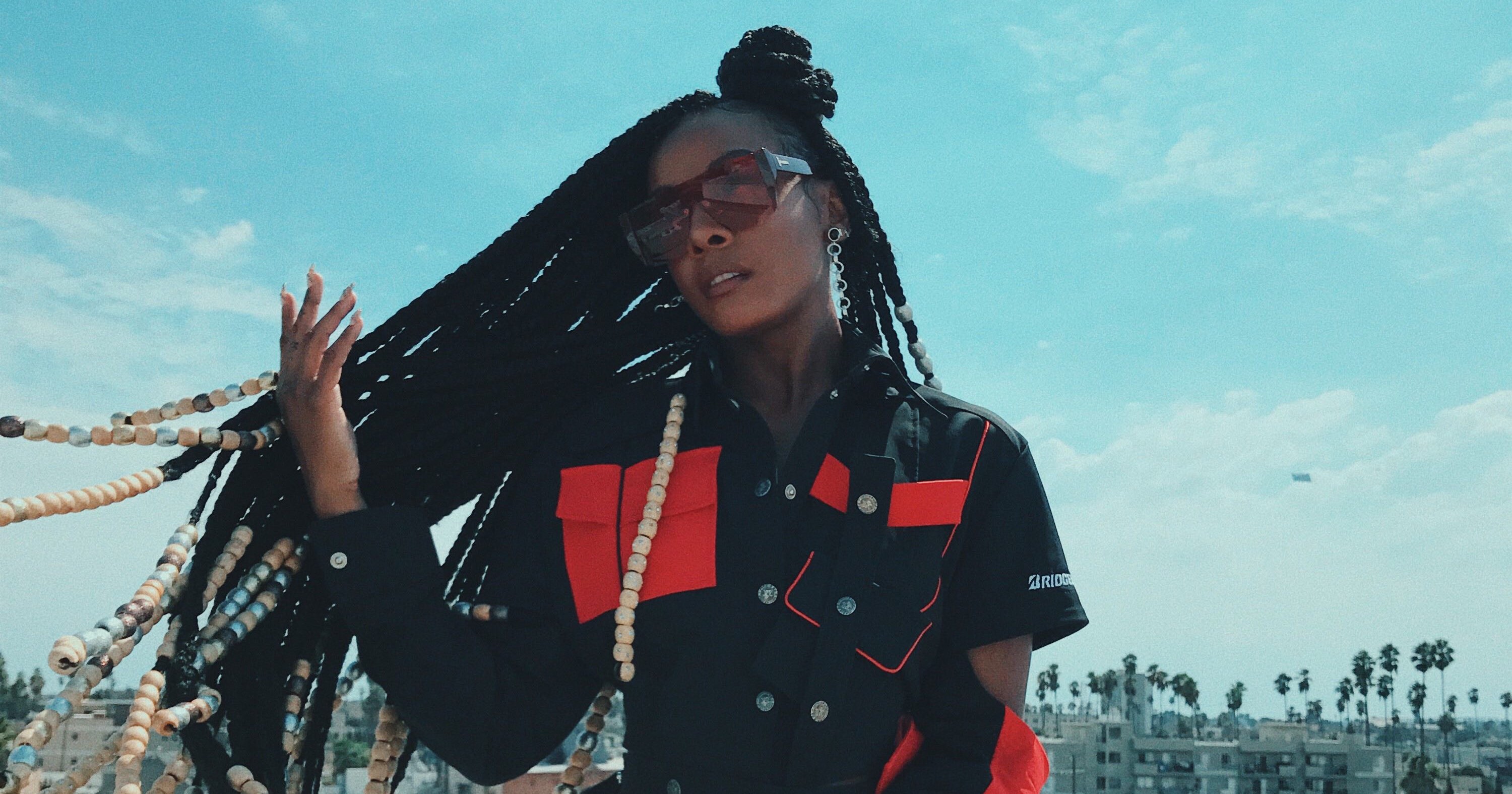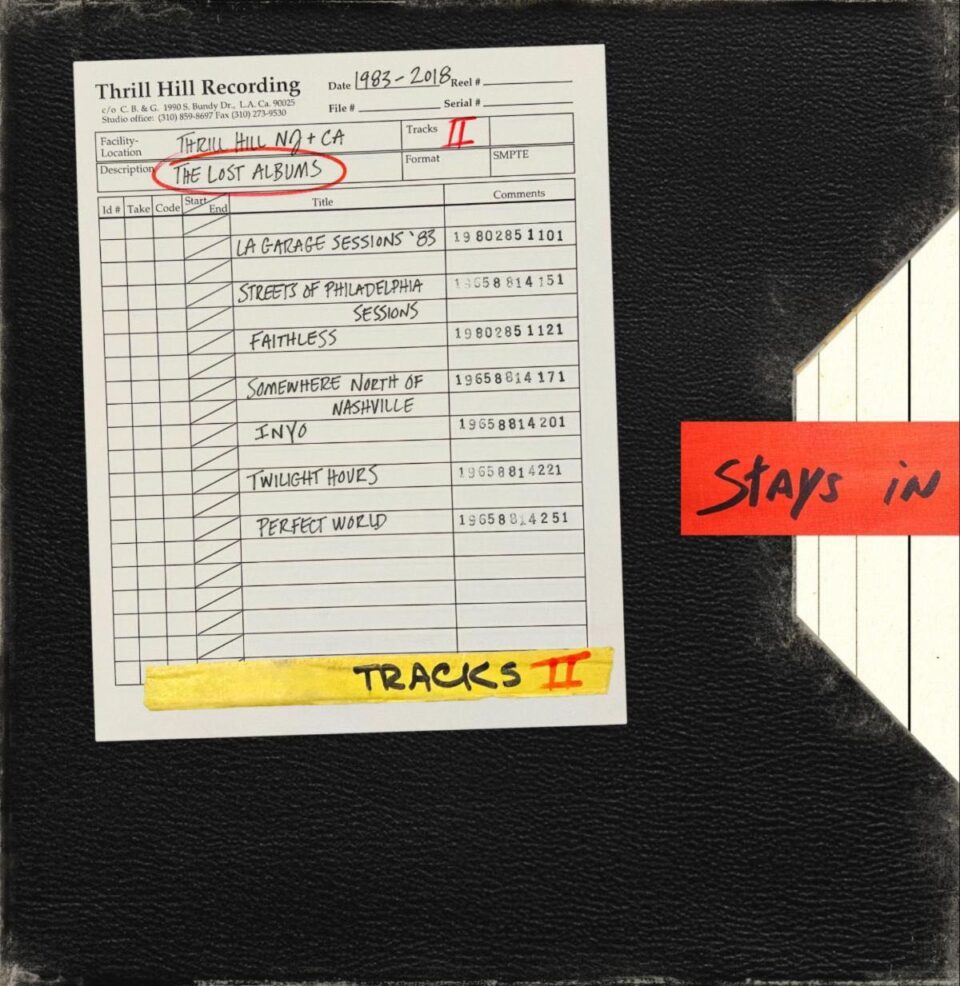In order to champion the voices of other supremely talented and oft-overlooked musicians whose professional challenges mirror her own, indie pop singer/songwriter DΔWN (also known as Dawn Richard) coined the saucy catchphrase-turned-campaign #IndieButMajor. In spite of the mainstream music industry’s unfortunate tendency to disregard self-supporting titans of her ilk, Richard’s momentum continues to strengthen.
As an unsigned act, the NOLA-born and bred performer boldly steers her career with the confidence and precision of her major label–backed counterparts. Richard releases chart-topping albums and singles that get airtime on popular shows like HBO’s Insecure and The CW’s Black Lightning, which recently featured the Machinedrum-assisted track “Renegades,” a relentless sonic declaration for rebels.
Her pristine aesthetic and experimental sound make thriving as an autonomous act look much too easy. But Richard remains painfully aware of the monumental effort required to be an indie artist these days.
“Your biggest pop artists play on the radio all the time,” Richard explains. “They’ve got bells and whistles, fireworks and pyro, collabs…and there’s a lot of money being spent to make sure the pop artist is curated a certain way. In indie culture, really, we just don’t have the money to portray that kind of idea.”
Despite the uneven playing field, Richard says there’s still an expectation for indie performers to produce shows, visuals, and music on the same level and at the same frequency as major label artists in order to be noticed. In response to that competitive challenge, she relies on innovation and resourcefulness.
“I draw. I have a degree in marine biology and marketing. I love tech,” she adds, mentioning her ongoing partnership with startup Techstars. “So there are other things I can bring to my art—not just music. It’s a part of a larger picture for me.”
“I felt like it would have been dope if people would’ve understood how I wasn’t asking for validation—I was asking for inclusion.”
Additionally, she’s learned to build her own stage sets, found a company to help incorporate virtual reality and 3D elements into her videos and live shows, and teamed up with Adult Swim on animation projects and music (see her recent single “Waves”). Richard also makes it a point to hire dancers, choreographers, stylists, directors, and other independent creators of color who are equally passionate about their art and can relate to trying to flourish in spaces where they’re often regarded as outsiders.
“I felt like it would have been dope if people really would’ve understood how I wasn’t asking for validation—I was asking for inclusion,” Richard says of the struggles she encountered at the onset of her indie journey. “That’s something different, and people sometimes get those things confused.”
Richard uses the film industry as an example of how inclusivity and activism could positively impact the state of the music business. Since she entered indie territory with 2011’s Prelude to a Tell Tale Heart mixtape, Richard has witnessed monumental changes in the entertainment industry as a whole. “You’ve seen a really large growth of visual content from indie artists,” she says. “This year alone the Oscars have had so many independent filmmakers that have come through with incredible films.”
As a result, Richard calls Oscar-winning indie films such as I, Tonya and Get Out the new standard, a perspective she hopes the music industry will explore in the near future. “When you take a chance on ‘the other,’ you might be surprised how it can gain you a benefit. I think film has recognized it,” she adds. “I hope that I could help pioneer the same kind of movement in the music space.”
“When you take a chance on ‘the other,’ you might be surprised how it can gain you a benefit.”
Richard also sees the music industry collectively lagging behind the film industry when it comes to activism, citing the 2018 Grammy dearth of #MeToo and #TimesUp moments and the lack of female winners in this year’s ceremony as proof. “We seem to just be late, a little bit behind,” Richard says. “The Oscars was full of people walking with advocates and activists, and it was really powerful. And then the Grammys came and we just saw Janelle Monáe talking about it. And I think that proved right there the lack of female presence in higher spaces…in music, and it also proved that we’ve got some work to do as an industry.”
Despite her commitment to being an indie advocate, Richard doesn’t see the mainstream industry as the enemy. She is adamant that indie artists aren’t looking for a handout: They simply want respect, recognition, and opportunities, and to not have their work unfairly scrutinized.“I think mainstream artists are great. I think they’re supposed to be where they are,” Richard insists. “I don’t think labels shouldn’t exist. I think they’re awesome. I just think we should get just as much respect as the mainstream artists because we work twice as hard.”
Through all the challenges they face as the underdogs of the music industry, Richard implores other independent artists to understand the power that comes with fiercely safeguarding their creativity. “Your art is your fuel. You have to understand that your art is the golden ticket,” Richard emphasizes. “If you can facilitate your art and give it to the world in its most beautiful way, you have won the battle.” FL









